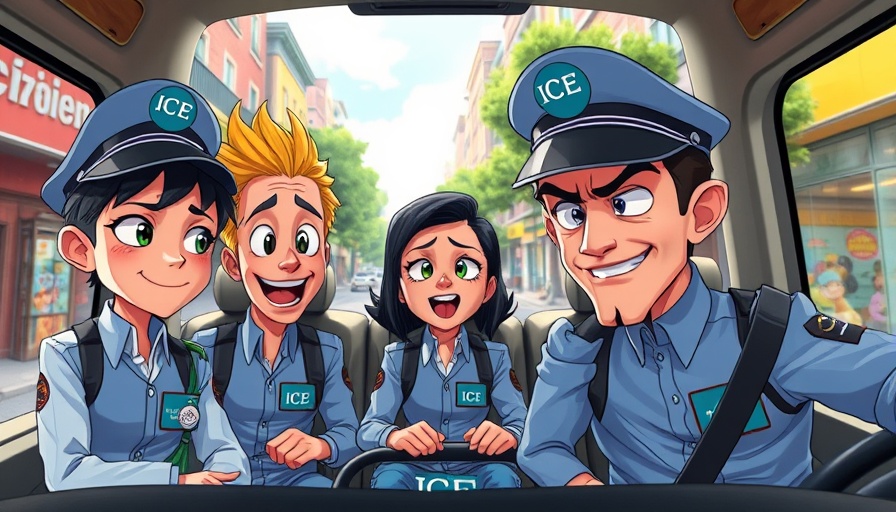
Understanding the Controversy: South Park vs. Homeland Security
The popular animated series South Park has recently taken a bold stand against the use of their show by Homeland Security to recruit for U.S. Immigration and Customs Enforcement (ICE). The backlash emerged after Homeland Security's recruitment campaign included clips from the satire, leveraging its notoriety to promote their message. The creators of South Park, Matt Stone and Trey Parker, voiced their dissatisfaction, emphasizing that their show should not be associated with any entity perceived as promoting hate.
Why This Debate Matters: A Reflection on Comedy's Role
This incident highlights the significant issues surrounding how art and media can be co-opted for political purposes. South Park has long been a lightning rod for controversy, often critiquing various aspects of society, including government actions. By appropriating clips of the show, Homeland Security inadvertently mixed the lines between comedy and real-world policies, prompting viewers to consider how often entertainment influences societal perceptions.
The Response from the Creators: A Powerful Statement
In a statement referencing their long-standing tradition of tackling sensitive topics through humor, the creators of South Park clarified their position. They expressed that using their content to highlight government efforts in enforcement and immigration is entirely misaligned with their intentions. Artistic creators often tread an intricate line between generating laughs and conveying significant messages, and this incident exemplifies the risks involved.
Polarizing Opinions: Public Responses
The public's reaction indicates that the debate extends beyond just the show. Supporters of South Park argue that the misuse of media to promote agendas contradicts the artistic integrity and freedom of expression, leading to concerns over endorsements they might never agree with. Conversely, others believe that the attention drawn by such associations can lead to discussions about immigration policies and government roles. This polarization prompts a broader discourse about societal values and influences from pop culture.
The Bigger Picture: Media and Policy Trends
By examining this event, it becomes crucial to assess the role entertainment plays in shaping public opinion on pressing issues such as immigration. Comedians and satirists often reflect societal sentiments, and the misrepresentation of their work reflects a growing trend where media is not just a source of entertainment, but a powerful influence on political ideologies. The intersection of comedy and policy can serve as a magnifying glass, revealing deeper societal orientations.
Conclusion: Implications for Future Media Engagement
The situation sheds light on how essential it becomes for creators to assert their visions and for media consumers to critically evaluate content. As creators like those behind South Park continue to navigate these waters, it encourages audiences to engage thoughtfully with the messages presented in entertainment. This engagement can foster a richer dialogue about representation and the influence of media in our everyday lives.
If you’re interested in further exploring the implications of this controversy on pop culture, be sure to keep an eye out for South Park as they continue to deliver commentary relevant to our times!
 Add Row
Add Row  Add
Add 




Write A Comment